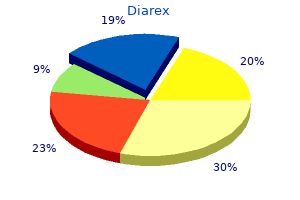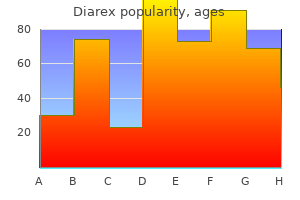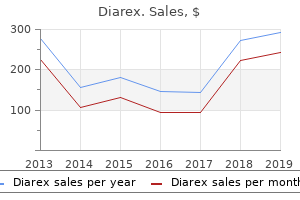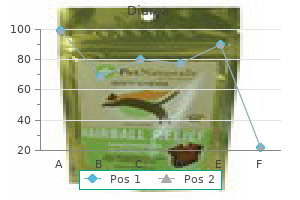"Diarex 30caps free shipping, gastritis hiatal hernia diet."
By: Pierre Kory, MPA, MD
- Associate Professor of Medicine, Fellowship Program Director, Division of Pulmonary, Critical Care, and Sleep Medicine, Mount Sinai Beth Israel Medical Center Icahn School of Medicine at Mount Sinai, New York, New York

https://www.medicine.wisc.edu/people-search/people/staff/5057/Kory_Pierre
Visit the website to gastritis and exercise quality diarex 30 caps see more details of its programming for people living with dementia chronic gastritis mayo generic 30 caps diarex with visa. It is aimed at participants in a stakeholder engagement process gastritis diet ayurveda order diarex 30 caps otc, who may include representatives from the community, businesses, local and regional governments and the voluntary sector. It identifes eight key areas for action in creating a dementia-friendly community, including information around arts, leisure, culture and recreation. Developed by the Tunbridge Wells Museum and Art Gallery based on a research project with Alzheimer’s Society in West Kent and Canterbury Christ Church University. Artists and arts organisations, often with little or minimal support or acknowledgement, have taken a lead in developing creative responses to the dementia challenge. However, while numbers can tell an important story, they are not the only forms of evidence. Narrative accounts, information from interviews, video data and artistic outputs can all be valid, important and informative components of research and evaluation. This is particularly the case when addressing a complex condition such as dementia. What follows is a brief introduction to research and evaluation within arts and dementia care. It is far from exhaustive but aims to provide useful resources and information to artists and arts organisations to support strategic planning and contribute to funding applications. It also assists in the development of new programme areas as they continue to provide creative, stimulating, innovative and engaging work for people with dementia. Evidence commonly refers to a body of information (sometimes referred to as proof) that may support a claim or belief. In the case of arts initiatives for people with dementia, evidence refers to the effectiveness of the initiative in achieving an outcome that creates positive changes in health or wellbeing. Quality of research varies from well-described procedures and measures to more anecdotal reports. Many different art forms have been involved in dementia care from early to later stages. Singing, music, dance, poetry, writing, visual art, drama and museum object handling have all positively contributed to dementia care. These are two significant and important aspects in the life of both people with dementia and carers. Being less socially isolated and being socially engaged can have an impact on cognitive and emotional stimulation, wellbeing and episodic memory. The importance of this should not be underestimated as a means to support family carers as well as those with dementia. They have also demonstrated enhanced cognitive processes, such as memory retrieval and attention, enhanced memory, listening and concentration. The most robust evidence to date relates to singing coaching groups for those with mild dementia. The evidence showed improvements in episodic memory, executive function and general cognition as well as short-term and working memory. Viewing visual art followed by making art has been shown to improve episodic memory in early and moderate dementia. It has also shown to increase verbalisation during interventions, leading to sustained engagement in activities and promoting spontaneous communication. It can also increase useful behaviours (eg brushing teeth, dressing, going to the toilet). The impact of community-based arts and health interventions on cognition in people with dementia: A systematic literature review. We provide information and support to people with any form of dementia and their carers through our publications, National Dementia Helpline, website, and more than 3,000 local services. We campaign for better quality of life for people with dementia and greater understanding of dementia. We also fund an innovative programme of medical and social research into the cause, cure and prevention of dementia and the care people receive. Palliative Care for the Person with Dementia Guidance Document 7: Medication and Dementia – Palliative Assessment and Management. Whilst every effort has been made by the authors to ensure the accuracy of the information and material contained in this document, errors or omissions may occur in the content.


Although this degree of insomnia severity may not require immediate treatment gastritis inflammation diet generic diarex 30 caps with visa, you may still want to gastritis diagnosis code order 30caps diarex amex talk to gastritis diet restrictions cheap diarex 30caps free shipping a health-care professional about your sleep (for further evaluation) or continue monitoring these symptoms to check if they worsen over time. Score between 15-21: Insomnia of moderate severity this result suggests that you experience insomnia symptoms of moderate sever ity; such symptoms are usually signifcant enough to warrant further evaluation and treatment. Score between 22-28: Severe insomnia this result suggests that you experience severe insomnia associated with signif cant impairment of daytime functioning. You should talk to a health-care profes sional about additional evaluation and treatment. It may also involve relaxation techniques to alleviate stress, worries and tension and educa tion to promote good sleep hygiene practices. These methods are fairly straightforward but they require a good deal of self-discipline. A brief description of those procedures is presented below (see Tables 1 4 on pages 44 to 46). Typically, people who follow this treatment systematically will fall asleep faster (usually within 30 min), wake up less frequently and for shorter durations (usually for less than 30 min), and sleep more effciently. The success of this approach depends largely on your motivation and on how diligent you are in following the different recommendations. It is very important to implement all procedures consistently for a period of 4 to 6 weeks in order to optimize sleep improvements. Combined treatments should optimize therapeutic benefts, with the medications producing rapid relief and the behavioural approach producing more sustained results over the long run. Restrict the amount of time in bed as close as possible to your actual sleep time. Set aside a time/place, other than bedtime, to write down worries and plans for the next day. Practice relaxation regularly 46 A 62-year-old woman presented with a fve-year history of poor sleep and daytime fatigue. She would fall asleep properly and sleep the whole night and yet wake up feeling tired. After a few visits and with no clear answer, a sleep study was undertaken during which a normal sleep was recorded. A more careful review about her sleeping environment at home revealed that she lived in a corner house on a busy, noisy road. She was advised to wear ear plugs at night and have the dog sleep elsewhere and her sleep was greatly improved and her fatigue disappeared. This identifes that a good history of the sleep environment may identify what is causing sleep disruption once other abnormalities are ruled out. Keep realistic expectations Even good sleepers do not always get 8 hours of quality sleep. She had been tried on many medica tions over the years and all had worked for about a week or two and then stop being efective. The lack of sleep was ?ruining my life and ?if I could just fnd the correct sleeping pill, it would be all fxed. Relaxation techniques and discussions regarding what to expect from sleep were added to her therapy sessions. Exercise on a daily basis was encouraged and the therapist eased her concern about the sleep at each visit. Over time there was a progressive improvement in her sleep and she stopped taking sleep ing pills. She still woke a few times each night but was able to meditate and allow herself not to be overly upset by these awakenings. She no longer considered that she needed to have a full night of sleep to function properly. If you wish more personalized help, you should seek a professional consultation with a psycholo gist or a psychiatrist with training in behavioural sleep medicine You may also seek a complete sleep evaluation (including an overnight diagnostic test) from a sleep clinic.

In the staff member the burnout was correlated with lower empathy and less positive attitudes alcoholic gastritis definition generic diarex 30caps fast delivery. Therefore it requires a special care skill to gastritis acid diet order 30 caps diarex with amex the family members and Medical team gastritis in pregnancy diarex 30 caps free shipping. These services can provide by the geriatric hospitals those are able to offer care units for patients with behavioral and psychological symptoms of dementia, physical illness and to manage collaboration with multidisciplinary (physicians, neurologist, nurses, psychologists, and social workers etc. Because home care for person with advanced dementia and institutional care are not affordable and are being major public health problems. So palliative care must be an appropriate policy for management of 45 MedDocs eBooks advanced dementia care. Likewise, in the community home care nurses had the greatest access to older adults. Communities where nursing practice included home care nursing positions contributed to expanding an awareness of older adults with dementia. Most dementia research work has been focused on biomedical and psychological models than socio-cultural context. There are hidden factors in how cultural factors may intervene between the experience and response of dementia. Sociocultural factors is important for care elderly because most aging population wish to spend their rest of life in the society, where they grew up. Also, this dementia disease often occurs at the end of life meanwhile the other active family member should go to fnd his/her career. At that time the societal care is essential to them either by the family or welfare society by community. In western cultural values of independence and vitality, the changing family unit (not joint family concept) and the concept of aging in place is being burden older people in the family and community. Comparatively, the eastern society is more reliable because of culture respect toward the older than western socio-cultural in the aspects of aging care due to the joint family concept, yet. Off-course, the dementia-related issue is not only with the hospital and their staffs, it should have a public concern too. Therefore, currently the new concept has been emerged to care for the demented patients in Australia, is called baptized care. Patients can achieve some regular care services like; regular hairdresser visits, podiatrist, physiotherapist, regular trips, church services and many other benefts. In contrast focusing on not only the disease of brain, care that is wide concerns and its value, emotions and cognitive abilities, gender, marital status, gender, ethnicity may have signifcant effect on dementia patients [149]. Management of Dementia the management goal of dementia in primary care are: to maintain the quality of life, maximize the daily function activities, endorse safety environment, promote the involvement of social engagement, enhance cognitive and behavior, to empower them to make own decision, plan for best possible care, further clinical management, to keep balance of antipsychotics long-term use and management of psycho-behavioural symptoms, treating pain, understating medical conditions, and risk factors of Alzheimer disease, Lewybody disease, Frontotemporal disease, Vascular disease and Parkinsons disease. The health professionals (doctors and nurses) roles are versatile in the hospital to manage the patients better health, health care setting, early diagnosis and interventions, collaboration and co-ordination with the other health professionals. Also, the advance technology settings 46 MedDocs eBooks in new health issues and their settings need to be integrated and adjusted. The community participation, foster a safe environment, promote social engagement, carers services and best communication on dementia for elderly people also can help to the dementia patients. During this couples of decades of period there are vary emerged pathological diagnosis and management innovations for dementia and its related disorders. Doctors, nurses and caregivers are important for the long-term care placements and reduction of caregivers diffculties and patients behavior problems in the hospitals [150]. Formal care and management will provide by the nurse, doctors and paid care workers in hospitals. Patients with dementia need often especial care and management either by the caregiver from family or nursing homes. Particularly, the behavioural and psychological problems of management are burden to the caregivers. A study identifed the three management strategies like; encouragement, active management and criticism were associated with three aspects. The active management and criticism was associated to the caregiver burden and less desire to the institution of the patients [152].


Abstract thought Abstract concepts chronic gastritis journal discount 30 caps diarex fast delivery, such as numbers and arithmetic gastritis anti inflammatory diet discount diarex 30caps visa, become difficult early in the disease the gastritis diet order diarex 30caps overnight delivery. Very often, one of the first indicators of a dementing process is mismanagement of finances and an inability to add and subtract in order to manage a cheque book. When combined with the deficit in short-term memory, this may result in debts not being paid, or being paid many times over. Often, people with Alzheimer disease will pay for purchases with a bill or two, ask if it is enough, and trust that they are receiving the correct change. It is difficult, but important, for family to be sure that the person is not being taken advantage of by another who does not have their best interests at heart, or is working for their own personal advantage, rather than protecting the interests and assets of the person with dementia. Aphasia means the loss of language, and can include both speech and comprehension. Any one of these skills may be affected: understanding what others are saying; knowing what things are called, being able to put one’s own ideas into words, or, being able to think of the words you want and use them to communicate what you want to say. When language is affected, the frustration of word finding difficulties is magnified many times. People may use a similar word – such as salt when they mean sugar, or they may describe the thing that they can’t name – for example, a cup may be described as “the thing that I drink out of”. A person with Alzheimer disease may look at a fork, turn it over, and put it down, not knowing what it is or what one would use it for. The knowledge that they developed in childhood, about forks and their use, has disappeared. Agnosia means a total or partial loss of the ability to recognize familiar objects or persons through sensory stimuli as the result of organic brain damage due to the dementia. Any of the senses can be affected an inability to identify something by sight would be termed visual agnosia. The loss of the ability to interpret perceptions combines with the loss of language to make communication and understanding more and more difficult. The people close to the person with Alzheimer disease often correct mistakes in language. Also, pointing out that someone is wrong is not something the rest of us do lightly. People with Alzheimer Disease make very frequent mistakes; as time goes on, they are almost always wrong. Having those mistakes pointed out to them causes a lot of stress, and their stress builds each time they are corrected. Continuous patterns of negative and scolding interaction may lead to anger and/or withdrawal on the part of the person with the disease. Long-time caregivers often talk about how they learned to “just let things go”, rather than correcting every mistake. People with dementia who are having language difficulties sometimes appear to be deaf. If you think of the sounds that come out of your mouth as just that, sounds, you can realize that the person to whom you are speaking is organizing those sounds into words, and giving those words meaning, in order to understand what you are saying. Further, they are integrating the meaning of your communication with the other things they know in order to evaluate your words. When someone cannot sort the sounds into meanings, your words become meaningless, as though they were listening to a language being spoken that they do not understand. One fellow described his experience with this by saying, “It’s not just that I need a hearing aid: I need a descrambler! People with dementia and language impairment are unable, as they once were, to isolate the words of one person in order to carry on a conversation when many other people are talking. Families may see the frustration this causes the person with dementia, as their loved one retires to a room alone during a family gathering, as they leave the church to sit in the car to avoid all the chit chat after the service, or, as they refuse to go to restaurants or malls where there is so much auditory and visual stimulation to process that they are totally overwhelmed and perhaps frightened. One lady in the very early part of the disease described being overwhelmed when in situations where many things are going on at once. She said she felt very insecure and anxious if she were anywhere in town besides her own home. They continue to feel the whole array of emotions: happiness, sadness, joy, grief, and so on. What changes is the amount of control they have on the expression of their emotions. When well, most of us can sit in a room and feel a strong emotion, such as anger or joy, but hide it from any one else, so no-one knows how we feel, and we can control what we say to mediate the expression of that emotion.
Discount 30caps diarex visa. Cara Menurunkan Berat Badan Ala Arya Permana #Breaktime.
References:
- https://www.novartis.us/sites/www.novartis.us/files/beovu.pdf
- http://www.softtissuetherapyonline.com/wp-content/uploads/2009/10/FreeChapter.pdf
- https://www.pharmacy.texas.gov/files_pdf/TSBP%20Rules_MASTER%20FILE.pdf
- https://www.cartercenter.org/resources/pdfs/health/ephti/library/lecture_notes/nursing_students/ob-gyn-body.pdf


